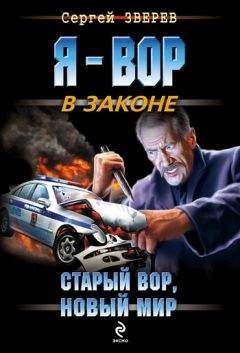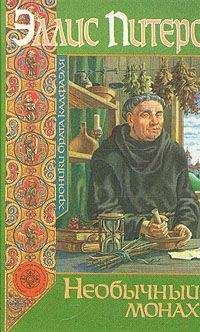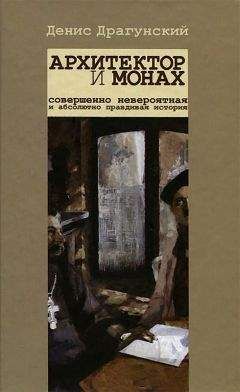Энтони Хоуп - Английский язык с Энтони Хоупом. Узник Зенды / Anthony Hope. The Prisoner Of Zenda
We were in the King’s dressing-room – Fritz von Tarlenheim, Sapt, and I. I flung myself exhausted into an armchair. Sapt lit his pipe. He uttered no congratulations on the marvellous success of our wild risk, but his whole bearing was eloquent of satisfaction. The triumph, aided perhaps by good wine, had made a new man of Fritz.
“What a day for you to remember!” he cried. “Gad, I’d like to be King for twelve hours myself! But, Rassendyll, you mustn’t throw your heart too much into the part. I don’t wonder Black Michael looked blacker than ever – you and the princess had so much to say to one another.”
“How beautiful she is!” I exclaimed.
“Never mind the woman,” growled Sapt. “Are you ready to start?”
“Yes,” said I, with a sigh.
It was five o’clock, and at twelve I should be no more than Rudolf Rassendyll. I remarked on it in a joking tone.
“You’ll be lucky,” observed Sapt grimly (вам повезет, – мрачно заметил Сэпт; lucky – счастливый, удачливый), “if you’re not the late Rudolf Rassendyll (если вы не станете покойным Рудольфом Рассендилом; late – поздний; умерший, покойный). By Heaven! I feel my head wobbling on my shoulders every minute you’re in the city (ей-богу, каждую минуту, пока вы в городе, я чувствую, будто моя голова не крепко держится на плечах; to wobble – качаться из стороны в сторону). Do you know, friend, that Michael has had news from Zenda (вы знаете, дружище, что Михаэль получил из Зенды депешу; news – новость, новости; известие, сообщение)? He went into a room alone to read it (он вошел в комнату один, чтобы прочитать ее) – and he came out looking like a man dazed (и вышел, имея потрясенный вид: «выглядя, как изумленный человек»; to look – смотреть, глядеть; выглядеть, иметь вид).”
“I’m ready,” said I, this news making me none the more eager to linger (я готов, – сказал я; /ибо/ эта новость отбила у меня охоту мешкать; to make smb. + прилагательное – превращать, приводить в какое-л. состояние; none – ничуть не; eager – стремящийся /к чему-л./, жаждущий /чего-л./).
Sapt sat down (Сэпт сел).
“I must write us an order to leave the city (я должен написать приказ, чтобы нас выпустили из города: «чтобы мы покинули город»). Michael’s Governor, you know, and we must be prepared for hindrances (ведь губернатор – /человек/ Михаэля, и мы должны быть готовы к /тому, что нам будут чинить/ препятствия). You must sign the order (вам нужно будет подписать этот приказ).”
“My dear colonel, I’ve not been bred a forger (мой дорогой полковник, меня не учили подделывать подписи: «/быть/ мошенником, подделывающим документы»; to breed – выводить породу, разводить /скот, птицу/; воспитывать, обучать; to forge – ковать; подделывать, фальсифицировать)!”
Out of his pocket Sapt produced a piece of paper (из кармана Сэпт извлек листок бумаги; to produce – производить; предъявлять, представлять; piece – кусок, часть).
“There’s the King’s signature,” he said, “and here (вот королевская подпись, – сказал он, – а вот),” he went on, after another search in his pocket, “is some tracing paper (продолжал он, после того, как еще раз порылся в кармане, – калька; search – поиск; tracing paper – восковка, калька; trace – след, отпечаток). If you can’t manage a ‘Rudolf’ in ten minutes, why – I can (если вы не сможете вывести «Рудольф» через десять минут, что ж – я смогу; to manage – руководить, управлять; суметь /сделать/, справиться).”
“Your education has been more comprehensive than mine (ваше образование более всестороннее, чем мое; comprehensive – всеобъемлющий, полный),” said I. “You write it (вы и пишите это).”
“You’ll be lucky,” observed Sapt grimly, “if you’re not the late Rudolf Rassendyll. By Heaven! I feel my head wobbling on my shoulders every minute you’re in the city. Do you know, friend, that Michael has had news from Zenda? He went into a room alone to read it – and he came out looking like a man dazed.”
“I’m ready,” said I, this news making me none the more eager to linger.
Sapt sat down.
“I must write us an order to leave the city. Michael’s Governor, you know, and we must be prepared for hindrances. You must sign the order.”
“My dear colonel, I’ve not been bred a forger!”
Out of his pocket Sapt produced a piece of paper.
“There’s the King’s signature,” he said, “and here,” he went on, after another search in his pocket, “is some tracing paper. If you can’t manage a ‘Rudolf’ in ten minutes, why – I can.”
“Your education has been more comprehensive than mine,” said I. “You write it.”
And a very tolerable forgery did this versatile hero produce (и этот разносторонне /развитый/ герой изготовил весьма сносную подделку; tolerable – терпимый; сносный).
“Now, Fritz,” said he, “the King goes to bed (а теперь, Фриц, король отправляется спать; bed – кровать). He is upset (он очень утомлен; upset – расстроенный, огорченный). No one is to see him till nine o’clock tomorrow (никто не должен видеть = беспокоить его до девяти часов завтрашнего дня). You understand – no one (вы понимаете – никто)?”
“I understand,” answered Fritz (я понимаю, – отвечал Фриц).
“Michael may come, and claim immediate audience (может прийти Михаэль и потребовать немедленной аудиенции). You’ll answer that only princes of the blood are entitled to it (вы ответите, что только принцы крови имеют на это право).”
“That’ll annoy Michael,” laughed Fritz (это разозлит Михаэля, – рассмеялся Фриц; to annoy – досаждать, докучать; раздражать).
“You quite understand?” asked Sapt again (вы хорошо поняли, – снова спросил Сэпт; quite – вполне, совсем; полностью). “If the door of this room is opened while we’re away (если дверь этой комнаты откроется в наше отсутствие; to be away – отсутствовать), you’re not to be alive to tell us about it (вас не будет в живых, чтобы рассказать нам об этом).”
“I need no schooling, colonel,” said Fritz, a trifle haughtily (не нужно меня учить: «я не нуждаюсь в обучении», полковник, – сказал Фриц немного высокомерно).
“Here, wrap yourself in this big cloak,” Sapt continued to me (вот, закутайтесь в этот большой плащ, – продолжал Сэпт, /обращаясь/ ко мне), “and put on this flat cap (и наденьте эту шляпу; flat cap – шляпа с низкой тульей, которую носили в Лондоне в XVI–XVIII вв.; flat – плоский). My orderly rides with me to the hunting-lodge tonight (сегодня вечером со мной в охотничий домик едет мой ординарец).”
“There’s an obstacle,” I observed (есть одно препятствие, – заметил я). “The horse doesn’t live that can carry me forty miles (в природе нет такой лошади: «такая лошадь не живет», которая сможет нести меня сорок миль).”
And a very tolerable forgery did this versatile hero produce.
“Now, Fritz,” said he, “the King goes to bed. He is upset. No one is to see him till nine o’clock tomorrow. You understand – no one?”
“I understand,” answered Fritz.
“Michael may come, and claim immediate audience. You’ll answer that only princes of the blood are entitled to it.”
“That’ll annoy Michael,” laughed Fritz.
“You quite understand?” asked Sapt again. “If the door of this room is opened while we’re away, you’re not to be alive to tell us about it.”
“I need no schooling, colonel,” said Fritz, a trifle haughtily.
“Here, wrap yourself in this big cloak,” Sapt continued to me, “and put on this flat cap. My orderly rides with me to the hunting-lodge tonight.”
“There’s an obstacle,” I observed. “The horse doesn’t live that can carry me forty miles.”
“Oh, yes, he does – two of him: one here – one at the lodge (нет, есть – /даже/ две: одна здесь, другая в /охотничьем/ домике). Now, are you ready (итак, вы готовы)?”
“I’m ready,” said I (я готов, – сказал я).
Fritz held out his hand (Фриц протянул руку; to hold – держать; to hold out – протягивать, предлагать).
“In case,” said he; and we shook hands heartily (на всякий случай, – сказал он, и мы сердечно пожали руки; to shake).
“Damn your sentiment!” growled Sapt. “Come along (к черту ваши сантименты! – проворчал Сэпт, – пойдемте же; to damn – проклинать; sentiment – чувство; сентиментальность).”
He went, not to the door, but to a panel in the wall (он пошел, но не к двери, а к панели в стене).
“In the old King’s time,” said he, “I knew this way well (во времена /правления/ старого короля, – сказал он, – я хорошо знал эту дорогу).”
I followed him, and we walked, as I should estimate (я последовал за ним, и мы прошли, по моим подсчетам; to estimate – оценивать; подсчитывать, прикидывать), near two hundred yards along a narrow passage (примерно две сотни ярдов по узкому проходу/коридору). Then we came to a stout oak door (затем мы подошли к крепкой дубовой двери). Sapt unlocked it (Сэпт открыл ее /ключом/; lock – замок). We passed through, and found ourselves in a quiet street (мы прошли в нее и оказались на тихой улочке; to find oneself – обрести себя; оказаться, очутиться) that ran along the back of the Palace gardens (которая проходила позади дворцового сада; to run – бежать; проходить, простираться). A man was waiting for us with two horses (нас ждал какой-то человек с двумя лошадьми). One was a magnificent bay, up to any weight (одна /из них/ была великолепная гнедая, способная выдержать любого: «любой вес»; to be up to – подходить, соответствовать /чему-л., кому-л./); the other a sturdy brown (другая – бурая, выносливая /на вид/; sturdy – сильный, крепкий; стойкий). Sapt signed to me to mount the bay (Сэпт сделал мне знак сесть на гнедую). Without a word to the man, we mounted and rode away (не сказав ни слова тому человеку, мы вскочили в седла и ускакали).
“Oh, yes, he does – two of him: one here – one at the lodge. Now, are you ready?”
“I’m ready,” said I.
Fritz held out his hand.
“In case,” said he; and we shook hands heartily.
“Damn your sentiment!” growled Sapt. “Come along.”
He went, not to the door, but to a panel in the wall.
“In the old King’s time,” said he, “I knew this way well.”
I followed him, and we walked, as I should estimate, near two hundred yards along a narrow passage. Then we came to a stout oak door. Sapt unlocked it. We passed through, and found ourselves in a quiet street that ran along the back of the Palace gardens. A man was waiting for us with two horses. One was a magnificent bay, up to any weight; the other a sturdy brown. Sapt signed to me to mount the bay. Without a word to the man, we mounted and rode away.
The town was full of noise and merriment (город был полон шума и веселья), but we took secluded ways (но мы выбирали безлюдные улочки: «пути»; secluded – уединенный, изолированный; отдаленный, глухой). My cloak was wrapped over half my face (плащ скрывал мне лицо до половины: «окутывал половину моего лица»; to wrap – сворачивать, складывать; окутывать, обертывать); the capacious flat cap hid every lock of my tell-tale hair (широкая шляпа скрывала каждый локон выдающих меня волос; capacious – вместительный; просторный, широкий; tell-tale – предательский, выдающий /что-л./). By Sapt’s directions, I crouched on my saddle (следуя указаниям Сэпта, я пригнулся в седле; direction – направление; указание, распоряжение), and rode with such a round back as I hope never to exhibit on a horse again (и ехал, ссутулившись так, как: «и ехал с такой круглой спиной, с какой», надеюсь, никогда не покажусь на лошади снова; round back – сутулость; round – круглый; back – спина). Down a long narrow lane we went (мы ехали по длинному узкому переулку; lane – узкая дорожка, тропинка; узкая улочка, переулок), meeting some wanderers and some roisterers (встречая каких-то странников и гуляк); and, as we rode, we heard the Cathedral bells still clanging out their welcome to the King (и пока мы ехали, мы слышали, как колокола собора все еще звонили, приветствуя короля; to clang – лязгать, бренчать; звенеть; welcome – приветствие). It was half past six, and still light (было половина седьмого, и еще светло). At last we came to the city wall and to a gate (наконец, мы подъехали к городской стене и к воротам).




